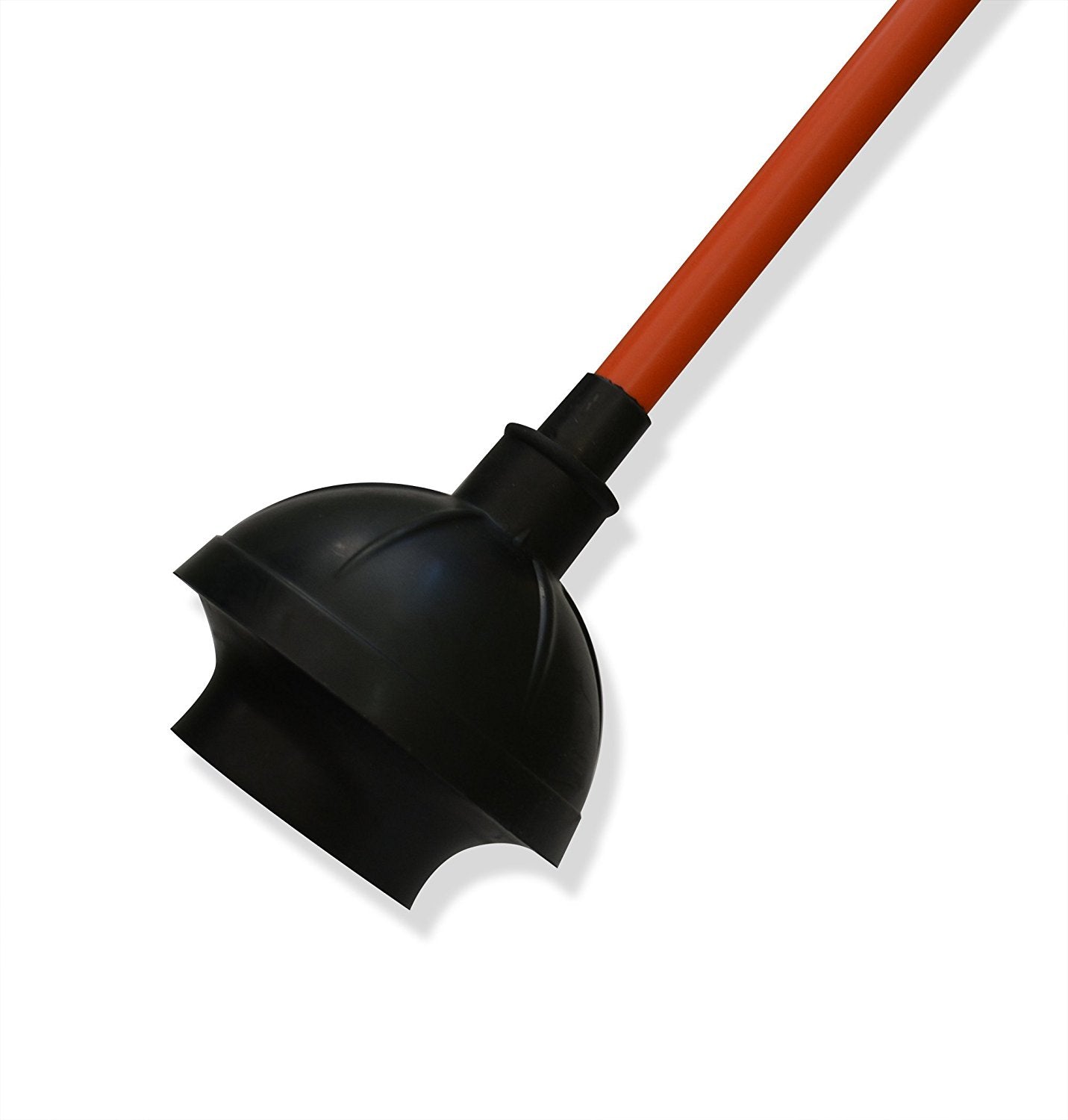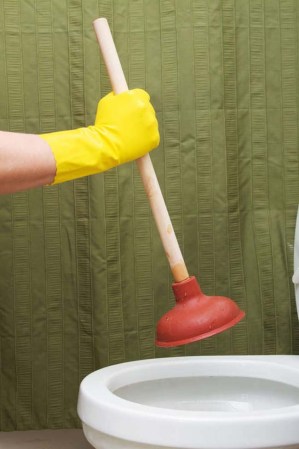Ways to Properly Utilize Plungers and Drain Cleaner: Professional Tips
Ways to Properly Utilize Plungers and Drain Cleaner: Professional Tips
Blog Article
In this article down the page you can discover a bunch of excellent details in relation to Tips on How to Effectively Use a Plunger.

Intro
Correct upkeep of house drains pipes is essential for preventing clogs and ensuring smooth water circulation. Among the secret tools in every homeowner's toolkit is the bettor, along with different drain cleansers created to deal with stubborn obstructions successfully. This short article explores just how to utilize plungers and drainpipe cleaners properly to keep your drains pipes streaming openly.
Section 1: Recognizing Plungers
Sorts of Plungers
There are a number of sorts of plungers readily available, each created for various sorts of drains and obstructs. One of the most common kinds include mug plungers, flange bettors, and accordion bettors.
Just How Plungers Job
Bettors work on the concept of producing pressure and suction to dislodge obstructions. When properly applied over a drain, they produce a vacuum that can pull out debris or break up blockages.
Picking the Right Bettor
Picking the ideal plunger depends upon the type of drainpipe and the nature of the obstruction. Cup plungers are perfect for sinks and tubs, while flange bettors are better suited for commodes because of their design.
Usual Errors with Bettors
Staying clear of these mistakes makes certain efficient plunging: improper seal around the drainpipe, inadequate force, and unclear surrounding particles.
Section 2: Using Plungers Properly
Preparation
Before diving, guarantee the plunger covers the drainpipe completely and creates a tight seal. Clear any kind of visible particles around the drain opening.
Strategy
Start with mild diving activities to build suction. Increase stress slowly, making use of a constant rhythm. Repeat as essential until the drainpipe gets rid of.
Troubleshooting Tips
If diving doesn't work, attempt changing the seal, using oil jelly for a better seal, or using a various type of bettor.
Section 3: Recognizing Drainpipe Cleaners
Types of Drain Cleansers
Drain pipes cleansers can be chemical or chemical. Chemical cleaners use solid chemicals to liquify clogs, while enzymatic cleansers utilize all-natural enzymes to break down raw material.
How Drainpipe Cleansers Job
Chemical cleaners respond with blockages to dissolve them, while enzymatic cleansers break down natural products like hair and oil without harming pipelines.
Safety Factors to consider
Always wear handwear covers and eye security when using chemical drain cleansers. Make sure adequate air flow and follow maker instructions thoroughly.
Eco-Friendly Alternatives
Consider utilizing vinegar and cooking soda or enzyme-based cleaners for environment-friendly alternatives that are safer for pipes and the setting.
Section 4: Using Drain Cleansers Properly
Application Methods
Pour chemical cleaners directly right into the drain opening. Allow them to benefit the suggested time before purging with warm water. Chemical cleansers should sit overnight.
Preventative measures
Prevent mixing different types of cleaners, as this can generate toxic fumes. Never use chemical cleansers along with a bettor, as splashing can happen.
Dealing With Stubborn Clogs
For relentless blockages, consider making use of a pipes serpent or calling an expert plumbing to avoid damage to pipes.
Conclusion
In conclusion, comprehending exactly how to utilize plungers and drain cleaners effectively is essential for keeping healthy plumbing systems. By selecting the right tools and strategies, homeowners can tackle small obstructions and prevent significant pipes problems down the line.
How To Properly Use A Plumbing Snake To Clear Drains
When any drain clogs in our home arise, we tend to gravitate toward the plunger and little else. In cases where the plunger and its vacuum-created pressure are not able to clear clogs, many immediately move to harmful chemicals or simply call their plumber to fix the issue.
we’re happy to help with all drain cleaning needs and concerns. This includes informing you on a few other home remedies you may have at your disposal for minor to moderate clogs, one of which is the use of a plumbing snake. Many people have never used one of these before – let’s go over the steps to take when your drain clogs and you have a plumbing snake available.
Attempt Plunger Use
The first step here, as we noted above, should indeed be to grab your plunger when you notice a drain clog and attempt to resolve it this way. If you’re unsure how to use a particular type of plunger, our plumbers can answer any questions you have. If this doesn’t do the trick, however, you move on to the snake.
Locate And Prepare Snake
A plumbing snake is a metal or plastic device that’s generally about a quarter of an inch thick. It’s design with significant extensions, meant to reach down into your clogged drain and push the clog out. Snakes also contain drain augers that will latch onto and push stubborn blockages.
If your plunger doesn’t clear a clog, locate your snake and bring it to the drain in question. We also recommend keeping a bucket nearby to collect the clog once you pull it out, plus we’d advise wearing goggles and possibly protective gloves.
Feed Snake
Once you’re ready to go, feed the snake slowly down the drain, using the crank device it comes with to keep it moving until it finds the clog. Once this happens, much of the clog will be latched onto the coil so you can pull it out, while the rest will simply break up and flow downward.
Detach Debris
Remove the snake slowly from the drain, and once you’ve done so, pick off any debris that’s stuck to the coil. This is another area where wearing gloves is a must.
Flush Drain
Finally, take a few minutes to ensure the snake has done its job correctly. If you’ve been using it on a toilet, flush the toilet a couple times and make sure everything flows well. If you’ve used it on a different drain, flush it with some room temperature water.
https://www.mybuddytheplumber.com/blog/how-to-properly-use-a-plumbing-snake-to-clear-drains/

Application Methods
Pour chemical cleaners directly right into the drain opening. Allow them to benefit the suggested time before purging with warm water. Chemical cleansers should sit overnight.
Preventative measures
Prevent mixing different types of cleaners, as this can generate toxic fumes. Never use chemical cleansers along with a bettor, as splashing can happen.
Dealing With Stubborn Clogs
For relentless blockages, consider making use of a pipes serpent or calling an expert plumbing to avoid damage to pipes.
Conclusion
In conclusion, comprehending exactly how to utilize plungers and drain cleaners effectively is essential for keeping healthy plumbing systems. By selecting the right tools and strategies, homeowners can tackle small obstructions and prevent significant pipes problems down the line.
How To Properly Use A Plumbing Snake To Clear Drains
When any drain clogs in our home arise, we tend to gravitate toward the plunger and little else. In cases where the plunger and its vacuum-created pressure are not able to clear clogs, many immediately move to harmful chemicals or simply call their plumber to fix the issue.
we’re happy to help with all drain cleaning needs and concerns. This includes informing you on a few other home remedies you may have at your disposal for minor to moderate clogs, one of which is the use of a plumbing snake. Many people have never used one of these before – let’s go over the steps to take when your drain clogs and you have a plumbing snake available.
Attempt Plunger Use
The first step here, as we noted above, should indeed be to grab your plunger when you notice a drain clog and attempt to resolve it this way. If you’re unsure how to use a particular type of plunger, our plumbers can answer any questions you have. If this doesn’t do the trick, however, you move on to the snake.
Locate And Prepare Snake
A plumbing snake is a metal or plastic device that’s generally about a quarter of an inch thick. It’s design with significant extensions, meant to reach down into your clogged drain and push the clog out. Snakes also contain drain augers that will latch onto and push stubborn blockages.
If your plunger doesn’t clear a clog, locate your snake and bring it to the drain in question. We also recommend keeping a bucket nearby to collect the clog once you pull it out, plus we’d advise wearing goggles and possibly protective gloves.
Feed Snake
Once you’re ready to go, feed the snake slowly down the drain, using the crank device it comes with to keep it moving until it finds the clog. Once this happens, much of the clog will be latched onto the coil so you can pull it out, while the rest will simply break up and flow downward.
Detach Debris
Remove the snake slowly from the drain, and once you’ve done so, pick off any debris that’s stuck to the coil. This is another area where wearing gloves is a must.
Flush Drain
Finally, take a few minutes to ensure the snake has done its job correctly. If you’ve been using it on a toilet, flush the toilet a couple times and make sure everything flows well. If you’ve used it on a different drain, flush it with some room temperature water.
https://www.mybuddytheplumber.com/blog/how-to-properly-use-a-plumbing-snake-to-clear-drains/

I hope you enjoyed reading our piece about Here's How to Correctly Use a Toilet Plunger. Many thanks for taking the time to read through our blog. In case you appreciated our blog entry if you please consider to pass it around. I praise you for your time. Return soon.
Call Today Report this page